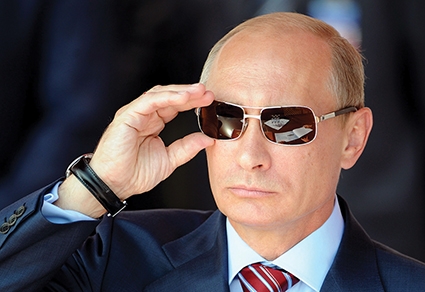Putin Announces Presidential Ambitions
Russian President Vladimir Putin announced on December 6 that he intends to run for a new six-year term following the March 2018 presidential election. The announcement took place in Nizhny Novgorod, where Putin said, “I will put forth my candidacy for the post of President of the Russian Federation".
The move was widely expected as Putin made announcements in similar fashion in his previous campaigns. His fourth term could potentially be his last as he is now 65 and will be prohibited from seeking reelection in 2024 since the Russian constitution does not allow presidents to hold their position for more than two consecutive terms.
When he made his previous announcements, however, the overall mood inside Russia was different, with fewer problems both internally and externally. Relations with neighbors were more stable and the EU and the US were not considering Russia as a direct security threat. Inside the country, the Kremlin had widely managed to persuade the population of the need to have a strong Putin presidency. And there was no viable competitor to Putin.
However, after Putin took over presidency for the third time in 2012, things began to change. Putin’s government has been facing major challenges both at home and abroad. In terms of foreign policy, Russia experienced several serious failures. In 2014, when the Euromaidan took place and Russia grabbed Crimea and supported separatists in Donbass, Kyiv became unequivocally pro-western in its foreign policy course. In the same year, Moldova, Ukraine, and Georgia all signed EU association agreements and stepped up military cooperation with NATO members and other western states. The EU even managed to sign an agreement with Moscow’s closest ally Armenia. Although much smaller in scale, the signing is nevertheless important.
To make matters worse, Russian foreign policy setbacks are not limited to the western borderlands or the South Caucasus. Over the past few years of Putin’s rule, it has become clear that Russian influence in the strategically important Central Asian region is receding. Russia remains a predominant military power with military bases in Tajikistan and Kyrgyzstan, but on the economic front, China has cemented its dominance. China has even made inroads into the security realm by holding exercises with the Tajik and Kyrgyz militaries.
Beyond that, Moscow’s plans to enlarge its Eurasian Economic Union (EEU) have notably failed as Uzbekistan, Azerbaijan and Tajikistan are not willing to become members of the project. What was created to counter the western influence (EU’s eastern enlargement) in the former Soviet space the EEU so far has remained an underdeveloped project.
On a broader geopolitical level, Russia is feeling pressure from the US and the EU. It is unlikely that the sanctions imposed on Russia will be lifted any time soon and Washington’s overall foreign policy thrust is decidedly anti-Russian. US military aid to Ukraine and Georgia is increasing, while cooperation with Moscow around Syria, North Korea and other hot spots has notably failed.
The EU is now much invigorated, as Putin’s gamble to revive far-right parties across the continent largely failed with Emmanuel Macron’s victory in France.
There is an even more fundamental issue. It is getting more and more difficult for Russians to understand why Putin’s presidency should go on for another six years. Next year, Putin’s rule, which has already lasted 17 years, will become the longest since Stalin’s. There is already an entire generation of young Russians who have known only Putin as the country’s leader.
This is very worrisome for the Russian government, as it is the younger population that is the most opposition-minded. This was well reflected in the composition of the countrywide protests that have hit Russia since 2016.
Over the past two years, there has been a consolidation of power in Putin’s hands. Laws were introduced limiting internet freedom and the work of foreign and local NGOs. Putin also created a powerful National Guard of up to 300,000 troops, essentially under his control, to snuff out future resistance. Further limits have also been placed on regional governments to solidify the Kremlin’s control over remote regions. For instance, Moscow chose not to continue its power-sharing agreement with Kazan. This ended the concept of Russia as a federation state, as Tatarstan was the last region (out of 46 in the early 2000s) to have its own somewhat autonomous powers.
Putin’s Russia in 2017 is in a much different position than in earlier decades. He will have to solve several fundamental problems in foreign policy. While at home he will tackle an increasing number of youngsters thinking differently.
Emil Avdaliani












